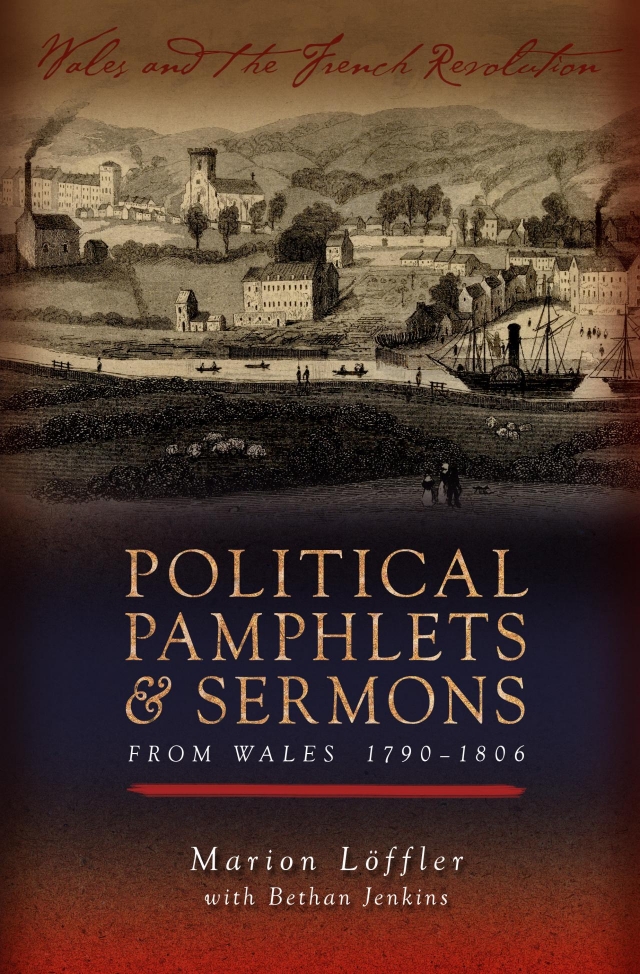Political Pamphlets & Sermons from Wales
Book Review

Political Pamphlets & Sermons from Wales, 1790-1806 by Marion Löffler with Bethan Jenkins
(University of Wales Press), 2014
322pp., £24.99 paper, ISBN 978-1-78316-100-3
In the aftermath of the outbreak of the French Revolution, there was an intense political debate across Britain about the nature of government and the question of people's rights. In England and the lowlands of Scotland, the debate was perhaps the most important since the mid-seventeenth century while in Ireland-under the dual impact of the influence of the American and French experience-it led to a struggle for independence frustrated by the defeat of United Ireland in 1798. Wales did not experience mass mobilisation on the same scale and no propaganda emerged calling for Welsh independence but there was debate in the Principality among Welsh radicals and loyalists and within the Anglican and Dissenting communities. Gregory Claeys in his epic collection of Political Writings in the 1790s only included one radical Welsh pamphlet suggesting that ‘Welsh developments remain more obscure.' This was largely because the debate in Wales was conducted in vernacular Welsh making it largely inaccessible to contemporaries and later historians.
This pioneering volume for the first time highlights Wales's contribution to the ‘French Revolution debate' after 1789. An extensive and extremely important essay reviews the Welsh political pamphlets and sermons of the period focusing on the debates between religious Dissenters, Methods and the Church; radicals and loyalists; as well as pacifists and patriotic war supporters. The five most important Welsh-language contributions to the debate are accompanied by translations and valuable annotations making them accessible to an English-speaking audience for the first time. Among the illustrations is the first political Welsh-language cartoon. My only criticism of this is that I would have liked the text on one page with the translation facing it with the annotations at the base of the page, like the Oxford Medieval Texts but that's a personal preference. It's eminently easier than having to keep flipping backwards and forwards to check the accuracy of the translation-excellent as far as I can see-and the comments on the text. The vagaries of my own presentational likings should not take away from what is an extremely important contribution to discussions of the influence of the French Revolution.

